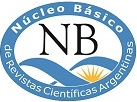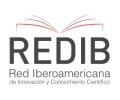Minimization of Water and Energy Consumption during Non-Isothermal Alcoholic Fermentation in Wines
Keywords:
dynamic optimization, alcoholic wine fermentation, water and energy savingAbstract
The use of controlled non-isothermal procedures in the production of high-quality wines leads to the use of efficient cooling/heating and automatic control systems. In this work, (cooling/heating) water and energy (for its pumping) consumptions during alcoholic wine fermentation are minimized, by means of determining an optimal fermentation temperature profile that preserves the desired ethanol production and the wine quality. Such a profile is obtained by using a non-constrained dynamic optimization method and the problem is one of non-linear programming. Constraints are temperature and time requirements. An improved non-isothermal model for a batch alcoholic fermentation is used and it is applied to a cold pre-fermentation winemaking. Results, which are been verified and compared to literature data, suggest that by means of optimization techniques, significant improvements in water and power savings can be obtained during non-isothermal oenological alcoholic fermentation.

















